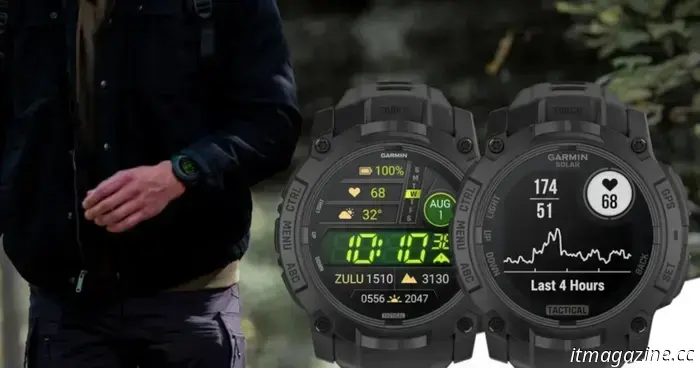
Funding for climate technology in Europe dropped to its lowest level in five years during the first quarter — here's the explanation.
Europe's climate tech startups secured $2.3 billion (€2 billion) in the first quarter of this year—marking the lowest amount since Q3 2020, as reported by Dealroom data. According to experts speaking to TNW, this figure reflects a complex blend of emerging challenges, evolving investor priorities, and overall dynamics within the venture capital market.
More precisely, they attributed the slowdown to a combination of market maturation, strategic shifts, the significant draw of AI on investment, and a challenging exit landscape. “If we consider the Dunning-Kruger Curve, we find ourselves at a despairing slope in the climate sector right now, at least from an investor's perspective,” stated Rokas Peciulaitis, founder and managing partner at Contrarian Ventures in Lithuania.
“There are no quick wins, no significant exits, and mergers and acquisitions are constrained. Many companies needed more capital than initially anticipated and did not demonstrate sufficient traction. Additionally, regulatory support has largely fallen short in most instances,” he added.
Nonetheless, Peciulaitis feels optimistic about the future. “I believe those who maintain discipline will succeed, both from the perspective of founders and venture capitalists,” he remarked.
European climate tech startups raised $2.3 billion in Q1 2025, and this graph also covers the beginning of Q2.
This funding decline follows an outstanding period for the sector. Over the past decade, European climate tech funding has surged, with 2023 being the best year, as climate tech startups garnered $15 billion in venture capital—outpacing their US counterparts, despite an overall challenging funding landscape that year.
Orla Browne, head of insights at Dealroom, mentioned to TNW several potential factors contributing to the slowdown of funding in Europe's climate tech sector in 2025.
Firstly, the market is undergoing maturation. Certain cleantech sectors, such as electric mobility startups, which once attracted substantial venture capital, are now commonplace. As these markets stabilize and become more entrenched, they typically draw less early-stage venture funding, Browne explained.
The excitement surrounding AI might also be contributing to the downturn. “AI is consuming a significant portion of venture capital, particularly at the expense of other sectors,” Browne noted, highlighting that over 25% of all venture capital is now directed towards AI startups, a steep increase from just a few years ago.
Additionally, climate tech startups may be repositioning themselves as focusing on “resilience” or “security” in order to leverage the rising defense tech expenditures and Europe's current emphasis on tech sovereignty.
This decline could also signify a broader return to normalcy after an unusual surge in venture capital investment in 2021. However, Peciulaitis is hopeful about many “unannounced deals” potentially in the works for this year.
Startup funding will be a central theme at the TNW Conference scheduled for June 19-20 in Amsterdam. Tickets for the event are currently available—use the code TNWXMEDIA2025 at checkout for a 30% discount.

Other articles
 This 27-inch gaming monitor by Samsung is almost 50% discounted.
The Samsung 27-inch Odyssey G65B Gaming Monitor is currently offered at a price of $360. You can buy it at Amazon, Walmart, or Samsung to benefit from this deal.
This 27-inch gaming monitor by Samsung is almost 50% discounted.
The Samsung 27-inch Odyssey G65B Gaming Monitor is currently offered at a price of $360. You can buy it at Amazon, Walmart, or Samsung to benefit from this deal.
 The new Garmin Instinct 3 Tactical is the rugged timepiece that has proven to be worth the wait.
Garmin Instinct 3 Tactical
The new Garmin Instinct 3 Tactical is the rugged timepiece that has proven to be worth the wait.
Garmin Instinct 3 Tactical
 Moto Razr Plus 2025 vs Razr Plus 2024: Minor distinctions, yet largely identical.
Given the minimal differences between the Razr Plus 2025 and the Razr Plus 2024, which device is the better buy, and is an upgrade worthwhile? Let's investigate!
Moto Razr Plus 2025 vs Razr Plus 2024: Minor distinctions, yet largely identical.
Given the minimal differences between the Razr Plus 2025 and the Razr Plus 2024, which device is the better buy, and is an upgrade worthwhile? Let's investigate!
 Hayden Christensen prepares for the anniversary of Revenge of the Sith in a funny new video.
In a recent video, Hayden Christensen amusingly attempts to purchase a ticket for the 20th anniversary of Star Wars: Revenge of the Sith.
Hayden Christensen prepares for the anniversary of Revenge of the Sith in a funny new video.
In a recent video, Hayden Christensen amusingly attempts to purchase a ticket for the 20th anniversary of Star Wars: Revenge of the Sith.
 Walmart has just reduced the price of the budget-friendly Asus Vivobook Go 15 by $80.
The Asus Vivobook Go 15 is a budget-friendly laptop that originally costs $299, but it is now available for only $219 after an $80 price cut at Walmart.
Walmart has just reduced the price of the budget-friendly Asus Vivobook Go 15 by $80.
The Asus Vivobook Go 15 is a budget-friendly laptop that originally costs $299, but it is now available for only $219 after an $80 price cut at Walmart.
 Meet the Dutch technology leaders presenting at the TNW Conference.
Several prominent figures in Dutch technology are set to speak at the TNW Conference, including the former CEO of ASML and the current CEO of DataSnipper.
Meet the Dutch technology leaders presenting at the TNW Conference.
Several prominent figures in Dutch technology are set to speak at the TNW Conference, including the former CEO of ASML and the current CEO of DataSnipper.
Funding for climate technology in Europe dropped to its lowest level in five years during the first quarter — here's the explanation.
In the first quarter of this year, climate tech startups in Europe secured $2.3 billion (€2 billion), marking the lowest amount since the third quarter of 2020.
